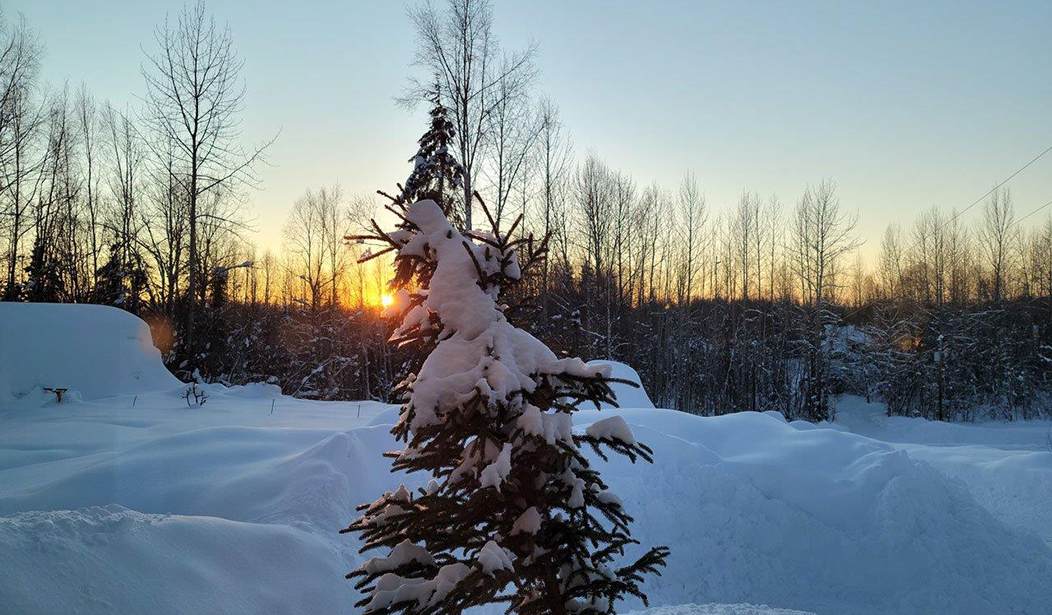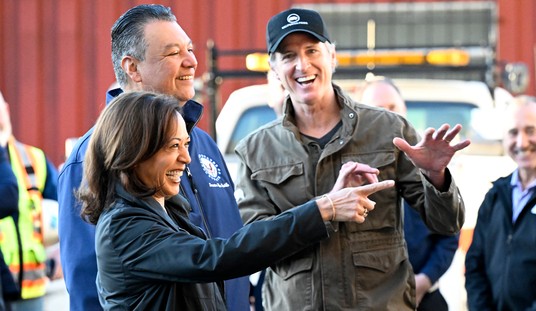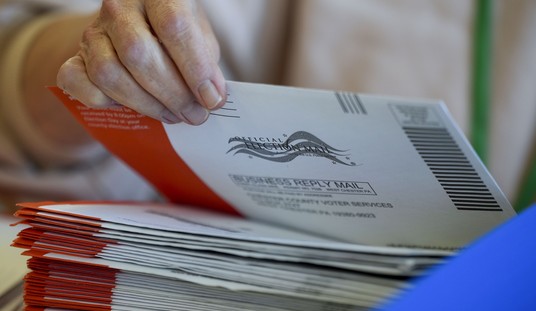Winter can be dangerous. That's something the climate scolds overlook; if we postulate a slightly warmer earth, it's apt to actually be better for people, less dangerous rather than more. We're a species adapted for warm climates, not cold. We don't have heavy coats of fur, we don't hibernate like bears. It's our intelligence, not our bodies, that allows us to live in colder climates.
Even animals adapted to live in these colder latitudes can get caught out by a sudden winter storm, and this year, thanks to the infamous polar vortex, was a tough one for humans and wildlife. But, with a little help from our friends, humans and critters alike mostly came through OK.
See Related: Bobcat Rescue: Two Kansas Linemen Rescue Frozen-Down Mother Cat, Kitten
But as a cautionary tale, I can take you back to (as I recall) the late autumn of 1979, when a sudden winter storm almost made an upper Mississippi duck hunt go badly wrong.
The house I grew up in, in Allamakee County, Iowa, wasn't far from the Upper Mississippi Wildlife Refuge and the boat ramps at Waukon Junction. My friends and I spent a fair amount of time out on the river, fishing, hunting ducks, and just generally goofing around. But one November weekend, when the weather promised some clouds and wind, my buddy John (the names have been changed to protect the... Well, let's just say I changed the names and leave it at that) decided to patch up our strings of battered decoys and take John's jon-boat (play on words unintentional) out into the backwaters of the Mississippi to hunt ducks.
We went to the boat ramp the night before, put the boat in the water, and camped under a clear sky, worried about the possibility of a blue-bird day. You want cloudy, unpleasant days to hunt ducks, you see, as on a bright, clear, sunny day - a blue-bird day - the ducks will be flying at the altitudes where normally only SR-71s operate, well out of gun range.
The storm moved in overnight, and we woke up to the temperature dropping like an anvil. Maybe as a result of that, John's battered old outboard motor wouldn't start.
With the weak beam of a flashlight older than he, John checked the spark plug wire and the gas level. All fine. With a frown, he yanked the cord again. And again. And again.
Still nothing.
We looked at each other with dread. The wind was slowly pushing us back towards the bank, the johnboat rotating slowly in the sluggish backwater current.
“Guess we’ll have to row for it, huh?” I ventured.
We took turns on the oars. The exertion soon had us shedding outer garments, sweating even as we squinted into the icy wind. The eastern horizon was already starting to brighten by the time we got to a decent spot, a U-shaped inlet on a small island. The bank was hidden by a tall stand of cattails, forming a natural blind.
I cast a nervous eye at the slowly brightening sky as we set out John’s ten decoys. As far as you could see, the sky was an angry mass of low, scudding gray snow clouds. The river water was icy, black, and choppy with the freshening wind. A few snowflakes began to drift down as we finished and set up our folding stools behind an improvised screen of cattails. Still, things seemed brighter once we were set up, ready, and comfortable, guns, food, and hot drinks at hand.
“Well, this ain’t so bad, is it?” John wanted to know.
I grunted. Something was nagging at what little good sense the 18-year-old me possessed. But, it did look like a good day to get some ducks. The trouble was that the ducks weren’t cooperating. Our first sighting of waterfowl was a coot, who swam through our paltry decoy layout, picked in a desultory fashion at some waterweed, mildly insulted a large drake mallard decoy, and puttered away.
Another hour later, the next sign of life came in the form of a muskrat, nosing along through the cattails. He gazed at us myopically for a moment, panicked, and dove with a loud splash.
“Should have bought some muskrat traps,” John groused, “might have got some more action that way.”
Just as things were starting to get boring, the wind picked up, and hard, gritty snow began to pelt us. We had still – still – seen no ducks; in fact, there had been no shots fired that we could hear, despite the hundreds of waterfowlers camouflaged in this stretch of backwater. With uncommon fortitude, we hunkered down to tough it out. At eleven o’clock, we heard a shot in the distance. Then, another, slightly closer; more followed, a series of shots working their way down the river towards us. John looked at me, wincing comically under the weight of the ice forming on his eyebrows.
“Birds comin’ in!”
No birds came in. Whatever the other hunters were shooting at didn’t make it as far as our stand. By noon, our thermos jugs of hot chocolate were drained. John had demonstrated uncommon foresight in placing his propane stove in the boat; together we discovered the logistical difficulties in warming up a ham-and-cheese sandwich over the open flame of a propane burner, using no tools but a mittened hand. We finally gave up and ate the sandwiches cold. John chipped a front tooth on a bit of frozen ham.
Around one, the wind picked up. The cattails behind which we were trying to hide bent flat against the roiled surface of the water. John’s decoys pulled tight against the anchor lines. Since the spread no longer looked too realistic, with all the blocks facing upwind with military precision, we rowed out and gathered the ten fake fowl in.
“M-m-m-maybe we’ll still get some p-p-p-pass shooting.” John hoped.
“I s-s-s-s-ure hope so,” I shivered in reply. “Hate t-t-t-o think we d-d-did all this f-f-for nothing.”
Two o’clock came and went, and all the ducks were still in Minnesota. The temperature, on the other hand, was something right off Hudson Bay or perhaps points north of that. A skim of ice now clung to the sides of John’s johnboat. A similar skin of ice now clung to my face. John had chipped two more teeth due to violent chattering.
Three o’clock rolled around. John’s teeth had finally stopped chattering because they were frozen together. Both of us hunched in the boat, our shivering forms covered with snow. Life had assumed the proportions of a Norse saga, with the two heroic figures battling wind, snow, ice, and the elements in an epic duel. The only thing missing was the end goal of our quest, the web-footed fowl we sought, our Holy Grail. The wind now drove the snow sideways, blasting it under our parka hoods, ripping away at our tender, frozen skin.
Four o’clock. The light was fading from the birdless sky. “We may as well start back,” I offered.
John growled in reply, “I reckon we might. Maybe rowing will warm us up.” He tossed an angry epithet at the failed outboard motor, which I won’t repeat here.
Amazing as it may seem, we had a spot of bad luck rowing back to the boat ramp. If you look at a map of the Upper Mississippi Wildlife Refuge, you’ll note that Iowa lies on the west side of the river; that afternoon, the gale-force wind was howling out of the west. Several boats with functioning outboards were tacking into the wind at angles, trying to fight their way back to the ramp; even powered boats were having difficulty. John strained at the oars to get us out of our inlet and into open water, but the moment he faced the wind the howling gale spun us sideways, pushing us back east.
“GET ON AN OAR!” John shouted over the roaring storm. I hopped onto the middle seat next to John; he took one oar, I the other, and we strained away until our muscles popped. Our progress was painfully slow; we’d make a few yards headway, and a gust of wind would blow us back. About halfway across the channel, fighting current and wind, we were overflown by the only bird of the day, a hen wood duck, screaming downwind at approximately Mach Two. Both of us grabbed shotguns, and blasted away at the hurtling form, with predictable results; the duck was probably traveling faster than the shot leaving our gun barrels. While we were thus engaged, the wind pushed us back a hundred yards. Groaning in frustration, we took to our oars again.
“One duck, and it got away clean.” John grumped.
It was past seven o’clock, and pitch dark, when we finally arrived back at the boat ramp. My face was frozen into a grim mask, my parka covered with a rime of ice, my arms felt as though I had soaked them in molten lead.
Against our better judgment, we elected to camp overnight and try again in the morning. John hauled the motor up into the back of his van, and an hour’s tinkering had it sputtering to life; at least we wouldn’t be rowing. We dined on still more frozen ham sandwiches and a barely-thawed can of pork and beans. The van was still icy cold when we crawled into our sleeping bags, hoping to keep ourselves warm and try to sleep. Exhaustion eventually overcame the cold.
In the morning, we awoke to a landscape covered in snow. Having suffered enough, we pulled in the boat, lashed it back to the top of John's van, and went home, where each of us received a stern lecture for our stupidity in testing those conditions. People die in storms like that out on that river, our angry fathers reminded us. They were right. We had learned something the hard way - but it could have been a lot harder.
Winter in much of the country - not just here in the Great Land - is something we have to prepare for and deal with wisely. And, most of us do a pretty good job of it.
See Related: Caregiver's Diary Part 18: Nailed the Winter Storm Prep (Almost)
Winter can be dangerous. Cold weather, globally, kills more people than hot weather does. Here in Alaska, I always point out to visitors, who normally come around in summer, that while our summers are beautiful, short and mild, our winters are dark, cold, and long. Winters here are beautiful, too, but they are not to be taken lightly; people who live in places like northern Minnesota, upstate New York, the Dakotas and Montana deal with similar conditions.
Be careful. Dress for the weather, not the trip. And, as always, spring will be here before we know it.















